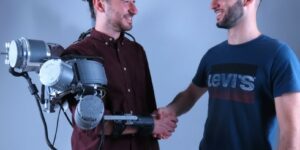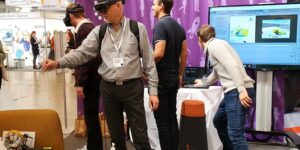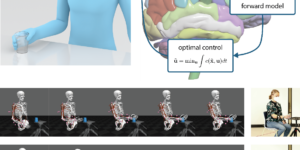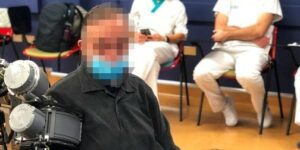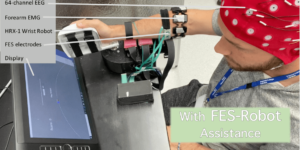REHYB@SSSA: The powered shoulder-elbow exoskeleton NESM-gamma
24.06.2022. Designing a robotic exoskeleton for rehabilitating or assisting human motor functions is a big engineering challenge. Exoskeletons can support complex human movements by providing timely and precise assistive actions according to the user’s intention while preserving the natural movement biomechanics.
